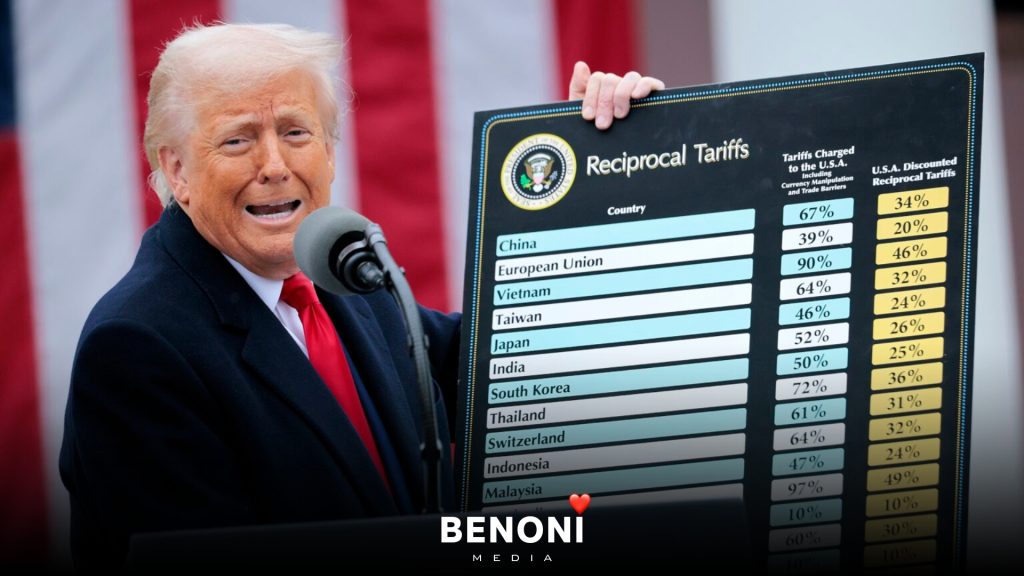South Africa is facing major economic pressure following new US tariffs on its exports, with President Cyril Ramaphosa calling for resilience amid shifting global trade conditions.
30% US Tariffs Add Pressure to Local Economy
South Africa is under economic strain after the United States announced a 30% tariff on imports from the country. The new US tariffs—set to take effect on 7 August—have been described by President Cyril Ramaphosa as a “harsh wake-up call.”
In his weekly newsletter, Ramaphosa stated:
“The US is South Africa’s second-largest trading partner by country, and these measures will have a considerable impact on industries that rely heavily on exports to that country and on the workers they employ, as well as on our fiscus.”
Sectors at Risk as Trade Relationship Faces Disruption
Industries that previously benefited from duty-free access under the African Growth and Opportunity Act (AGOA)—such as agriculture, automotive and textiles—are now at risk.
Ramaphosa said:
“South Africa’s trade relationship with the US has historically been complementary… Largely, our exports are inputs into US industries and therefore support the United States’ industrial base.”
He also pointed out that 22 South African companies have invested in sectors across the US, including mining, pharmaceuticals, and food.
South Africa Singled Out in Tariff Hike
According to official statements, South Africa is the only country in sub-Saharan Africa to face a 30% tariff, while other nations such as Lesotho and Zimbabwe will see a 15% tariff introduced on the same day.
Efforts had recently been made to strengthen US–SA trade ties through negotiations on poultry imports, LNG deals, and broader investment partnerships.
Ramaphosa Responds to Tariff Justifications
Ramaphosa argued that the US tariffs would also have repercussions for American consumers, noting:
“For example, citrus production is counter-seasonal and does not pose a threat to US production… Furthermore, production by US companies has been on the decline due to low yields, citrus greening disease and other factors unrelated to competition from imports.”
South Africa remains the world’s second-largest citrus exporter and plays a role in stabilising supply and pricing within the US market.
Government Plans Support Package for Affected Sectors
The Presidency confirmed that it is engaging with US officials through diplomatic channels while preparing domestic interventions.“Our foremost priority is protecting our export industries,” said Ramaphosa.
“We have established an Export Support Desk to assist affected producers.”
He added that a full support package would be announced soon, aimed at helping companies and workers affected by the tariffs, as well as encouraging export diversification.
Trade Diversification on the Agenda
Ramaphosa emphasised the need to explore new markets and reduce reliance on individual trading partners.
“Much as strengthening and establishing alternative value chains will take time, this moment presents us with an opportunity to push forward with the implementation and expansion of the African Continental Free Trade Area (AfCFTA).”
The President also confirmed the scaling up of trade missions and support programmes such as the National Exporter Development Programme.
Rising Political Tensions Add Complexity
The tariffs come against the backdrop of strained political relations between the two countries. The Trump administration has voiced criticism of certain South African policies, including land reform. Ramaphosa met with Trump in May, but no progress was made.
“The Presidency has firmly denied such claims, including that one of genocide on white farmers.”
Government Briefing Set for Monday
In light of the economic impact, Trade Minister Parks Tau and International Relations Minister Ronald Lamola are scheduled to address the issue in a joint media briefing at 10 a.m. on Monday at the Germiston Civic Centre in Ekurhuleni.
Over the weekend, ANC NEC member Dr Kgosientsho Ramokgopa described discussions on the matter as “spirited and robust.”
“Negotiations between the US and South Africa were ongoing,” he said, “and expressed confidence that the two nations would be able to find each other.”
No Easy Answers Amid Shifting Global Trade
Ramaphosa concluded by noting that the challenges are not unique to South Africa.
“A number of export-reliant developed and developing economies, including several on the continent, are also grappling with these measures… The international trading system is changing. Complacency will not serve us, and building resilience is imperative.”
